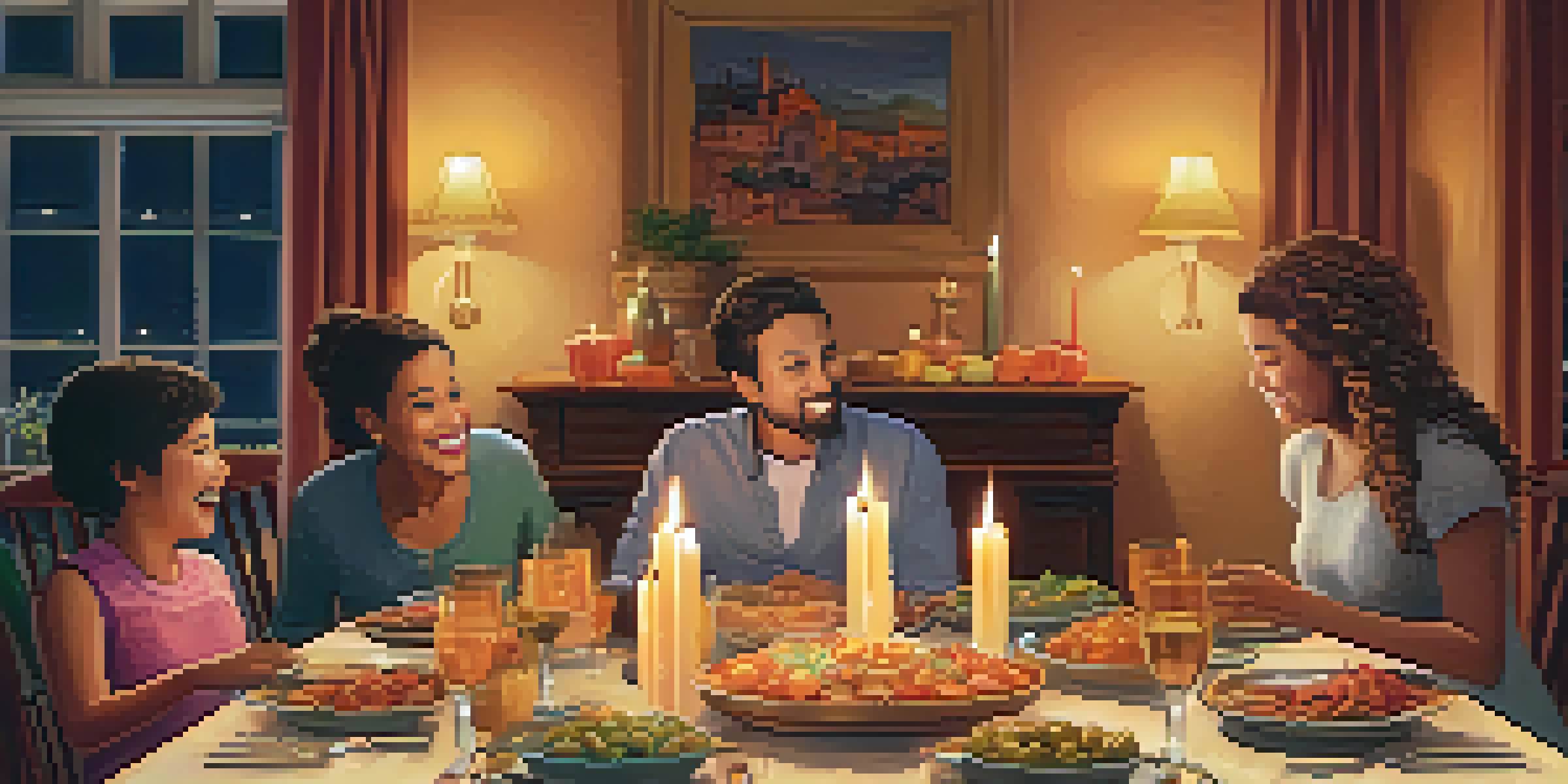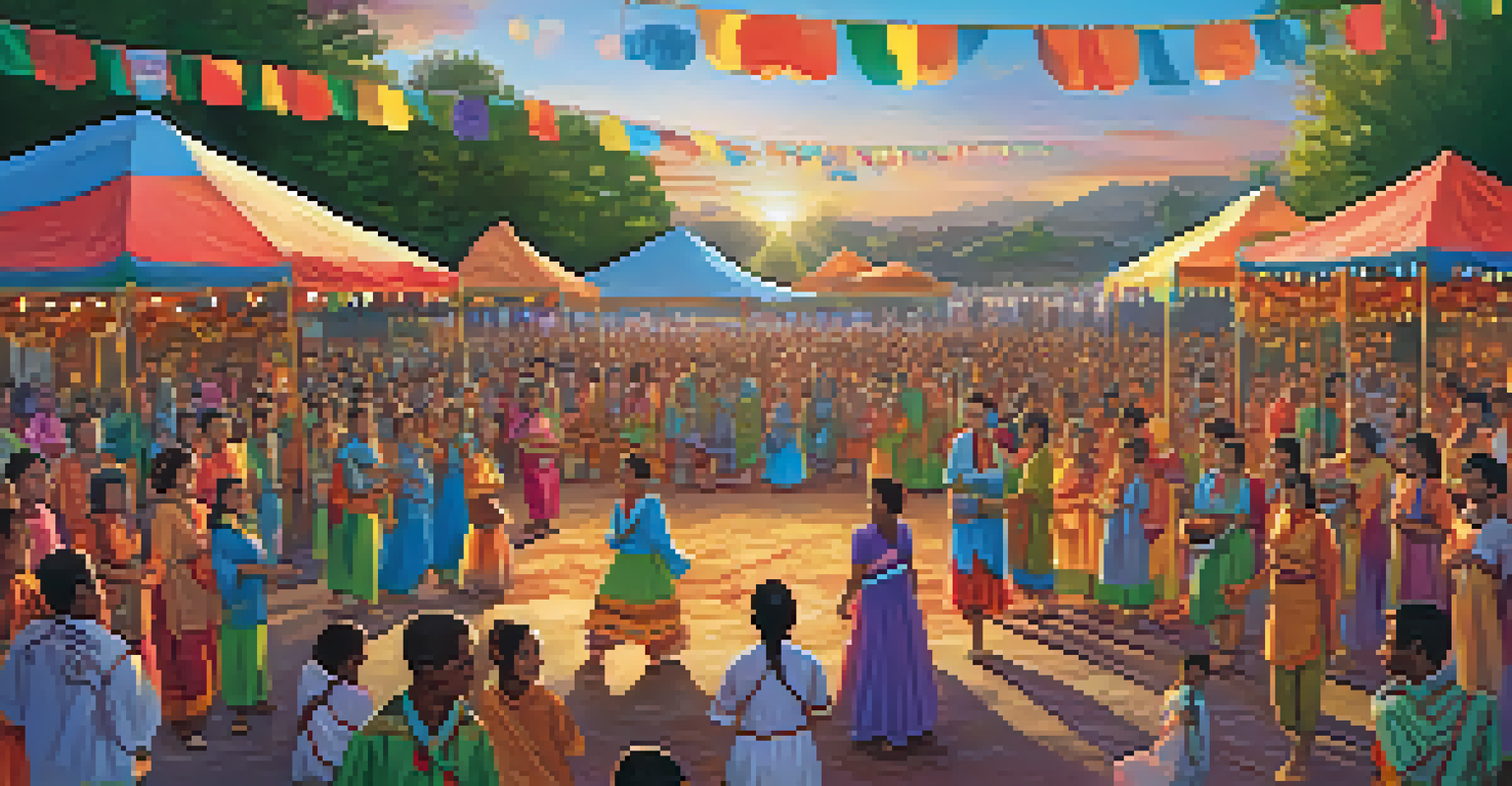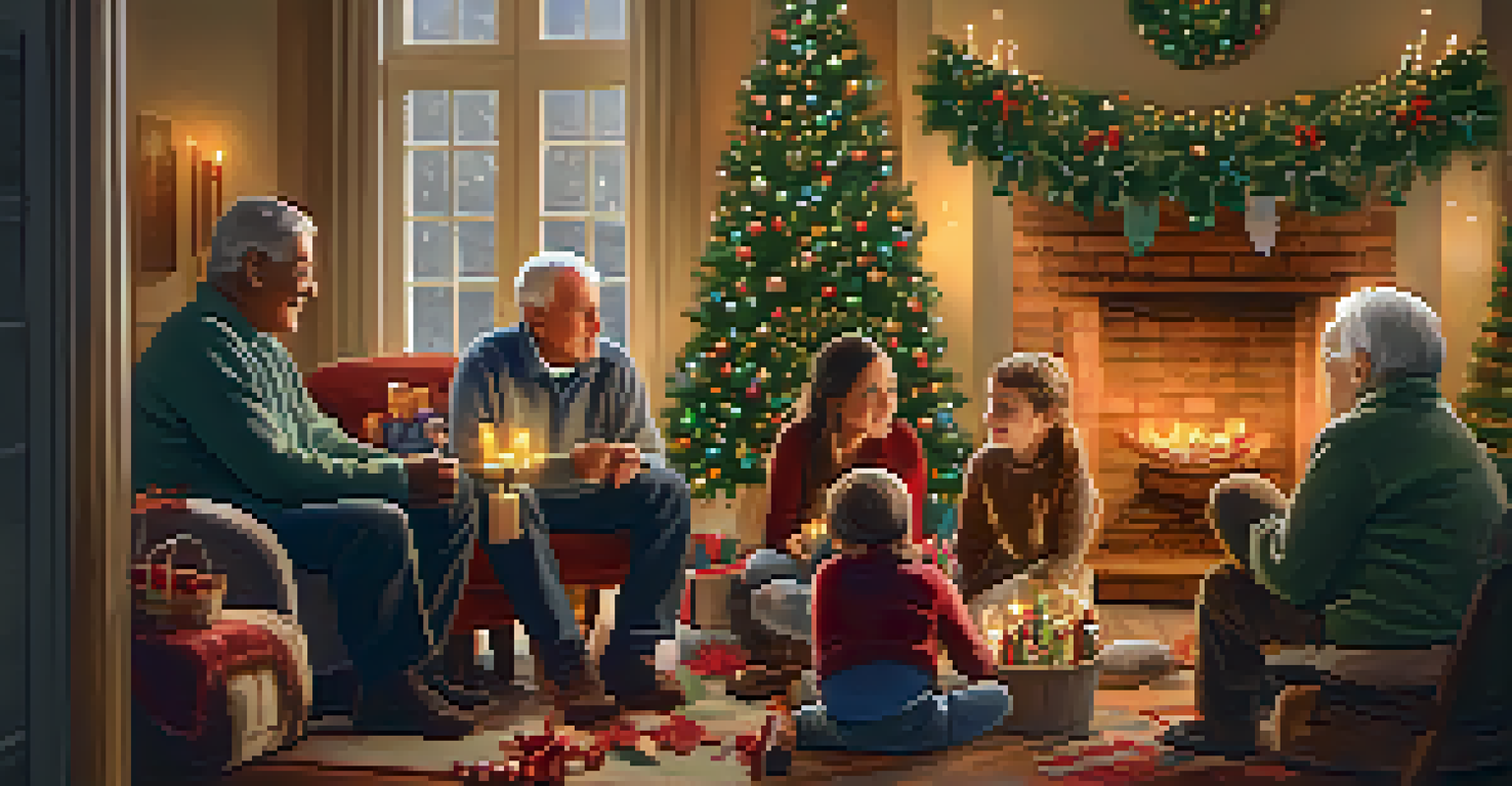How Rituals Create a Sense of Community and Belonging

Understanding Rituals: More Than Just Repetition
Rituals are often seen as mere routines, but they hold deeper meanings that go beyond repetition. They are shared practices that can create a sense of unity among participants, making everyone feel like they are part of something larger. Whether it’s a family tradition or a community event, rituals provide a framework for connection.
Rituals are the formulas by which harmony is restored.
Take, for example, the ritual of sharing a meal. Families gather around the dinner table not just to eat, but to exchange stories and strengthen their bonds. Similarly, community potlucks invite neighbors to come together, fostering a spirit of camaraderie through shared experiences and laughter.
In essence, rituals serve as a glue that binds us together, reminding us of our shared values and beliefs. They transform ordinary actions into significant moments, helping us to feel grounded and connected to those around us.
Rituals Promote Inclusivity and Understanding
One of the most beautiful aspects of rituals is their ability to create inclusive environments. When people engage in a common practice, it levels the playing field, allowing individuals from diverse backgrounds to come together. This shared participation encourages empathy and understanding across different cultures.

For instance, community festivals often include rituals from various cultures, allowing attendees to experience and appreciate each other's traditions. This not only enriches the community but also fosters respect and appreciation for diversity, helping to break down barriers.
Rituals Foster Community Connections
Rituals create a sense of unity and shared experience, helping individuals feel part of something larger.
By embracing rituals that celebrate inclusivity, communities can cultivate a sense of belonging where everyone feels valued. This openness encourages individuals to share their own traditions, further enriching the community fabric.
Creating Lasting Memories through Shared Experiences
Rituals create lasting memories that resonate with individuals long after they occur. These shared experiences often serve as touchstones in our lives, reminding us of the connections we’ve forged with others. When we participate in rituals together, we create stories that are passed down through generations.
We are all storytellers; we are all part of a great story. Rituals remind us of that.
Think about graduation ceremonies: they are filled with rituals that mark a significant life transition. The cap and gown, the speeches, and the throwing of caps all contribute to a shared experience that graduates remember fondly for years to come.
Such memories not only reinforce a sense of belonging but also encourage individuals to participate in future rituals, thus perpetuating the cycle of community engagement.
The Role of Rituals in Times of Change
In times of change or uncertainty, rituals can provide a comforting anchor for individuals and communities. They offer a sense of stability and continuity, helping people navigate through life’s transitions. Whether it’s a wedding, a funeral, or a graduation, these rituals guide us through critical moments.
For example, during challenging times like a pandemic, communities have turned to virtual rituals such as online gatherings, prayer services, or shared watch parties. These practices help maintain connections, reminding us that we are not alone even when physically apart.
Rituals Enhance Inclusivity
By encouraging shared participation, rituals promote empathy and understanding across diverse cultures.
Rituals thus become lifelines, reinforcing our sense of community and belonging during tumultuous times, helping individuals find solace in shared experiences.
Rituals as a Tool for Conflict Resolution
Rituals can also play a vital role in resolving conflicts and healing divisions within a community. By providing a structured way for individuals to come together, rituals offer a platform for dialogue and reconciliation. They can help mend relationships, fostering understanding and cooperation.
Consider a community that has experienced a disagreement or rift. Organizing a healing circle or a community dialogue ritual can facilitate open conversations, allowing individuals to express their feelings and work through their differences.
Through these rituals, communities can rebuild trust and reinforce a collective identity, paving the way for a more harmonious coexistence.
Rituals Strengthening Intergenerational Bonds
Rituals have a unique ability to bridge generations, connecting the past with the present. When older generations pass down rituals to younger ones, it fosters a sense of identity and continuity. This transmission creates a shared heritage that strengthens family and community ties.
For instance, holiday traditions such as storytelling or crafting can be passed down from grandparents to grandchildren, creating cherished memories that link families across time. These moments not only honor the past but also allow younger generations to feel more rooted in their identity.
Rituals Provide Stability in Change
In times of uncertainty, rituals offer comfort and continuity, helping individuals navigate life's transitions.
As a result, rituals become a way to celebrate life’s cycles, ensuring that the wisdom and values of one generation are carried forward to the next.
The Future of Rituals in a Digital World
As our world becomes increasingly digital, the nature of rituals is evolving. While technology may change how we connect, it also provides new opportunities for creating and sharing rituals. Virtual gatherings, online celebrations, and social media rituals are becoming commonplace, allowing communities to adapt.
For example, countless families now celebrate birthdays and holidays over video calls, creating new traditions that accommodate our busy lives. These digital rituals allow people to maintain connections regardless of distance, proving that the essence of belonging can transcend physical barriers.

Looking ahead, it’s important to embrace both traditional and modern rituals, ensuring that communities continue to thrive in an ever-changing landscape.